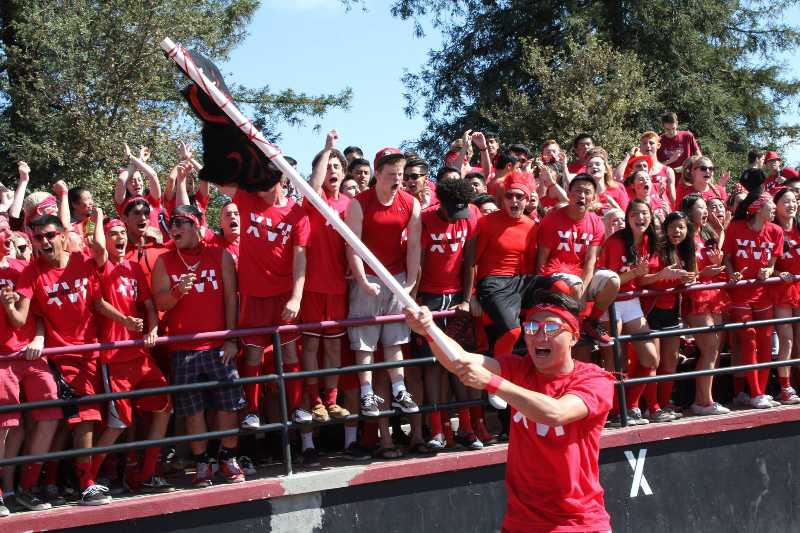Written by Josh Spain
“Sweet are the uses of adversity which, like the toad, ugly and venomous, wears yet a precious jewel in his head.” William Shakespeare. The first time I truly faced adversity in my life was in seventh grade. The morning of the first football game of the season, I broke my collarbone and was out for the entire season including playoffs. Some might suggest that this isn’t truly facing adversity. While I can understand the opinion of me sitting out one football season is not a huge deal, I would like to disagree. Ever since I can remember, I have always loved football. Football was my favorite sport that I had been playing for four years; I took it very seriously. When I suffered my injury, it threw me off a bit. Being on the sideline and watching my teammates compete without me was heartbreaking. Missing the season was a huge deal for me. One of my friends casually mentioned that it was “just one season,” and when I first heard this, I was welcoming of this idea. I told myself to get over it, that I was just being a little baby about missing the season. I told myself that my problems were invalid because others didn’t think it was a big deal. I made a mistake. Everyone has their own definition of adversity. For me, overcoming this injury was adversity. For my friend, this was just a simple injury that was not a big deal. My friend and I had different standards for adversity.

Since sports were a large part of my life, it felt weird not having being able to play one for such a long time. I had so much bottled up energy that I wasn’t able to get out during football season. I was dying to get involved with another sport. I turned to lacrosse. I had watched my brother play a few times, but I was pretty unfamiliar with the sport. I started to love the sport but I hated how I sucked at it. I failed a lot in that first season. Through the various occasions of failure in that season, I came to realize an important lesson. In order to become a better player, I have to fail. I learned to welcome failure. With these failures, I came to learn what my strengths and weaknesses were as a player. I has a long list of weaknesses but I started to work on making that list smaller and smaller. I wanted all of my problems to be fixed in the matter of a couple weeks. As I began to work on this large list of flaws in my game, it began clear that I needed to have a fair amount of patience. That was the key: patience.
Helping me learn patience with my problems was one of many life lessons I learned from playing sports. As I started to grow older, lacrosse became one of multiple areas in my life in which I struggled. I found that like lacrosse, I had to be patient with these obstacles. As I struggled in my junior year classes and had personal emotion problems, I was presented with by far the toughest obstacle in my life thus far. One of my best friends took his own life. Sad, confused, frustrated, helpless and lifeless I continued to drag myself along in life. It was hard for me to sleep, focus or exercise. This was the hardest time of my life. Bad things kept on piling on. I wasn’t sure how much more I could take, and I truly felt as if I wouldn’t be able to make it. I had the strength to make it through this but I had to remember to be patient.

While patience was a valuable lesson lacrosse had taught me, it was not the only one. After my first couple of years playing lacrosse, I revisited my list and noticed that it had not gotten any smaller. Was I doing something wrong? Did I really not get any better? Was I not trying? Actually, I had been improving on an incredibly fast pace. The difference between seventh grade me and ninth grade me was outstanding. So why had my list not gotten smaller? If I had made vast improvements, wouldn’t that list become much smaller? The points on my list were still clear flaws in my game. I did not throw a perfect pass 100 percent of the time and I still did not play perfect defense. Lacrosse has the nickname of “the fastest sport on two feet.” It requires a ton of quick and impulsive decisions. Given the large number of decisions, this means that there are many opportunities to both fail and succeed. I wanted to have no flaws in my game. I sought to be the perfect player. Becoming a perfect player was impossible. Flaws and failure are inevitable. This concept was something that became incredibly relevant to me. It was one of my lacrosse club coaches that helped me prioritize this mindset. He told me that throughout a game/practice, I am going to make many mistakes. Every player does. The thing that separates the good from the bad is how that player reacts to their mistakes. If I throw a bad pass, I cannot beat myself up about it. I have to be ready to move on and have the confidence to correct my mistake. As I started to mature not only as a player but as a person, I realized that this was an important concept to bear in mind, regardless of the situation at hand.
Webster’s dictionary defines adversity as: “A difficult situation or condition: misfortune or tragedy.” If I am asked to answer a question from an Advanced Placement (AP) Calculus test, a level of math that is much higher than the class I am currently enrolled in, I will have trouble answering it. I won’t even know where to start, what equations to use or what my answer will look like. Am I supposed to graph? Is my answer supposed to be a whole number?
If you asked my friend who is in AP Calculus a question from an test, they would not have the same problems as I do. They would know where to start, what equations to use and what the answer should look like. For me, this is a difficult situation. I am being asked to solve a problem that I am not familiarized with. As for my friend, they have practiced this problem in class and on homework.

They know how to solve this problem. Different people know how to deal with different problems and situations. Never downplay your problems just because someone else thinks that a certain situation is not difficult.
A saying that I always keep in my head is “confidence is key.” One cannot achieve something thinking that they will not be successful in what they want to achieve. Before a test, game, performance or anything in life, always tell yourself that you can do it. I told myself that I would make it. I would improve my life even if I made a couple mistakes and got unlucky with certain things. I needed to be patient. I knew the improvements and successes wouldn’t come immediately. The first step to accomplishing what you need to accomplish is to tell yourself you can do it. Tell yourself you can do it.












